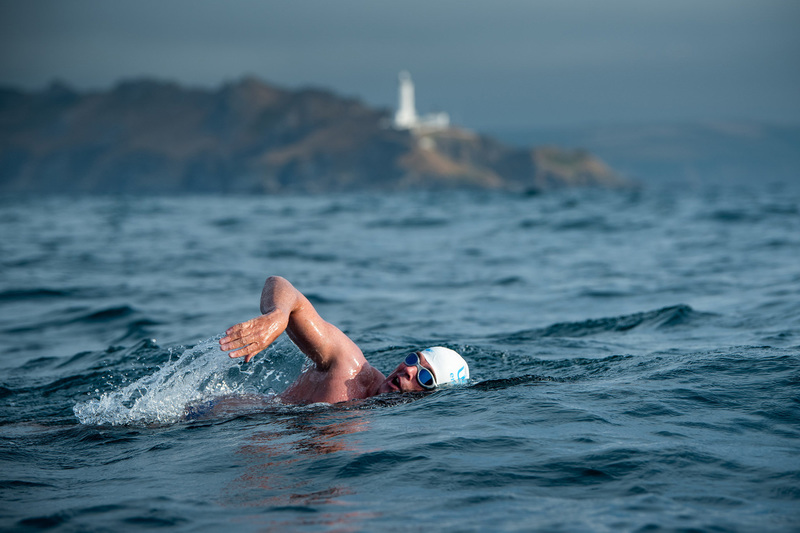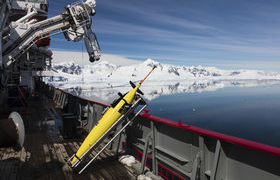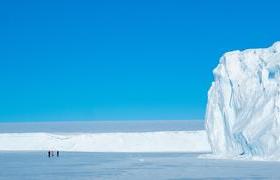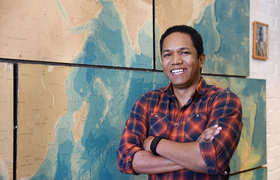Royal honour for UCT alumnus Pugh
11 March 2019 | Story Supplied. Photo Kelvin Trautman. Read time 4 min.
The Commonwealth, representing one-third of the world’s population and with a deep affinity with its seas, is uniquely placed to restore the health of the world’s oceans, University of Cape Town (UCT) alumnus and endurance swimmer Lewis Pugh said today in his address to mark the 70th anniversary of the Commonwealth.
Pugh was invited by Queen Elizabeth II to speak about protecting the world’s oceans at the annual Commonwealth Day Service at Westminster Abbey at about 13:00 today. The event was attended by members of the British royal family and United Kingdom Prime Minister Theresa May, along with high commissioners from across the Commonwealth and other dignitaries.
Pugh, who is also the United Nations Environment Programme (UNEP) Patron of the Oceans, pointed out that almost every Commonwealth nation is a maritime one, many of them island nations, and all have “a deep affinity with our oceans”.
But having been an endurance swimmer for 32 years, he has seen the oceans change completely over that time.
“Three things have come together to create this perfect storm: climate change, overfishing and plastic pollution.”
He called the speed of change “alarming”.
“When I first swam in the Arctic, the water was 3° centigrade. When I swam there recently, it was 10° centigrade. And that is right on the edge of the Arctic ice pack.”
Pugh warned that what the world does now will impact every person on the planet as well as the entire animal kingdom. It will also impact future generations.
Likening the world’s attitude to protecting the environment to his own when he attempted his one-kilometre swim at the North Pole, he said “we have been diving in with thoughts of victory and defeat in our minds at the same time”.
Dwindling resources
Pugh raised another red flag too, saying that when the environment is damaged, the situation results in conflict, with people fighting over dwindling resources.
“So, when we protect our environment, we foster peace.”
“So, when we protect our environment, we foster peace.”
He urged the Commonwealth leaders to recognise that “our common wealth is our ocean – with our vast marine estate, we now have an opportunity to work together to lead the world in ocean conservation”.
“But we must take action and keep up with the speed of change. Scientists are urging us to fully protect at least 30% of our oceans by 2030. Currently we have protected less than seven percent,” he pointed out.
Turning to the young people present at the service, Pugh said they did not cause the crisis, yet it will completely shape their lives.
“It is our responsibility to ensure that their voices are heard, and acted upon.
“Now is the time to build a new generation of marine protected areas, and now is also the time to welcome in a new generation of marine protectors.”
In her Commonwealth Day message, the Queen said the 2019 event has special significance as it marks the 70th anniversary of the London Declaration, when nations of the Commonwealth “agreed to move forward together as free and equal members”.
“The vision and sense of connection that inspired the signatories has stood the test of time, and the Commonwealth continues to grow, adapting to address contemporary needs,” she said.
- Hear Pugh’s full speech (starting at 27:54).
Pugh reported that the United Kingdom has announced full protection for the 445 000 square kilometres around Ascension Island, an area about double the size of the UK. The island is a jewel in the middle of the Atlantic Ocean, home to large numbers of fish and other sea creatures, including sharks, tuna, swordfish and turtles.
 This work is licensed under a Creative Commons Attribution-NoDerivatives 4.0 International License.
This work is licensed under a Creative Commons Attribution-NoDerivatives 4.0 International License.
Please view the republishing articles page for more information.










